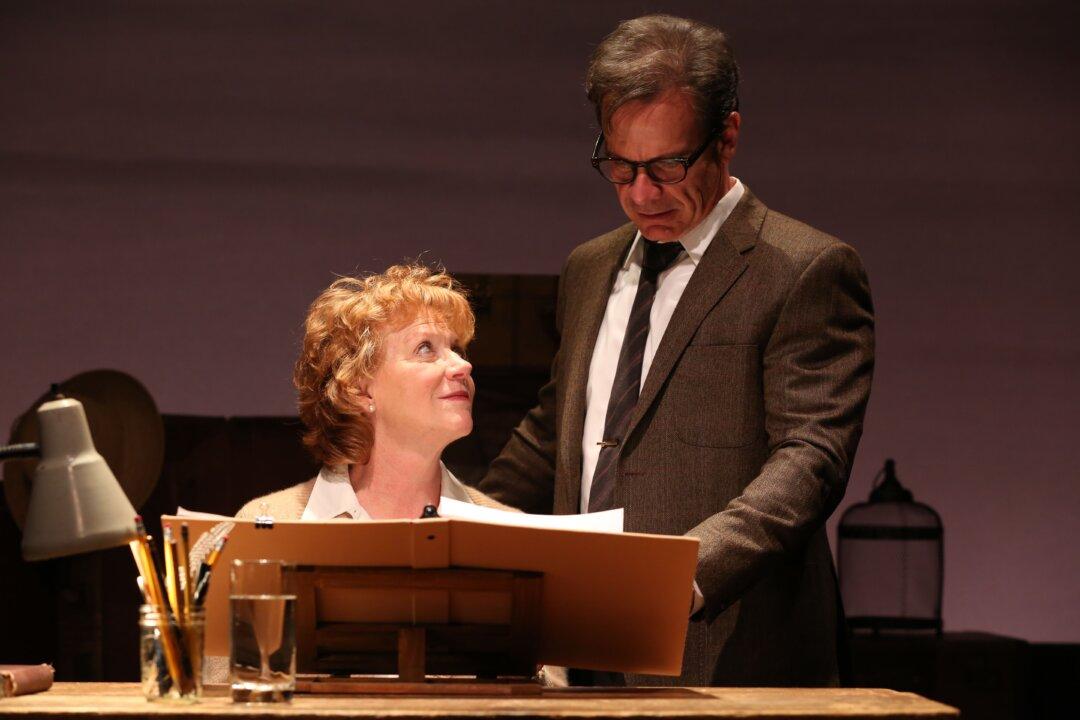NEW YORK—In truth, I had set out to see a performance of the reading of two poets’ letters to one another, not expecting much. In fact, “Dear Elizabeth,” by Sarah Ruhl, proved to be one of the most moving and fascinating theater pieces I’ve experienced in a very long time.
The text is a compilation of a selection from the hundreds of letters (around 800) that noted poets Elizabeth Bishop and Robert Lowell had written to each other over a long expanse of time.
Their correspondence began in a restrained fashion.





